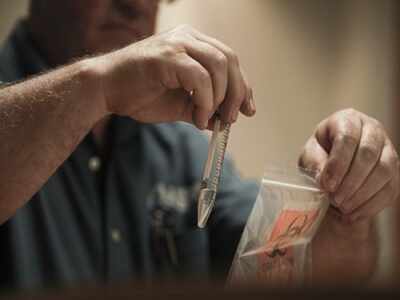
NEW DELHI: In the wake of the coronavirus pandemic, a number of medical terminologies like rapid antibodies test and RT-PCR test have come into focus.
However, right now, there is no one Covid test which is fully accurate. False-negatives are always possible. While RT-PCR is considered the gold standard for testing, researchers are developing novel testing kits that are faster and more accurate than RT-PCR.
Here is all you need to know:
COVID TESTING IN INDIA
RT-PCR test & how it is done
A reverse transcription polymerase chain reaction (RT-PCR) test is a laboratory technique combining reverse transcription of RNA into DNA that detects the virus while the antibody tests, which use blood, detect the body's response to the virus, experts said.
The World Health Organization and the US Centers for Disease Control and Prevention considers PCR tests the “gold standard” of Covid-19 testing, but, like all tests, they’re not perfect.
The sample is placed in a PCR machine, which uses cycles of heating and cooling to help ‘reagents’ amplify the target DNA into millions of copies. A fluorescent dye is added — the dye glows if the result is positive. In lab conditions, RT-PCR is almost 100% accurate.
RT-PCR tests take time and are a costly affair because of its elaborate kit.
In government labs, the tests are free but at private laboratories, which use RT-PCR test the cost is Rs 4,500.
Rapid Antibodies Test
Unlike other tests, antibody tests aren’t meant to pick up on the current infection with SARS-CoV-2. The antibody tests look for SARS-CoV-2-specific antibodies to see if you’ve previously had coronavirus.
Also termed as immunity tests, a positive test could mean a person has been exposed to the virus.
"The rapid antibodies tests are less expensive and the results can come in 20-30 minutes. It essentially tests if the antibodies in response to the coronavirus infection have been generated or not," said Delhi-based lung surgeon Arvind Kumar.
Rapid antibody tests are part of a measure introduced by the Indian Council of Medical Research's immunity certificate program and used in serosurveys to map out Covid exposure in towns and cities.
There are three broad categories of coronavirus tests in the US Two diagnose whether you have an active infection, and a third indicates if you previously had the virus.
Genetic tests
Most tests look for bits of the virus' genetic material, and require a nasal swab that is taken by a health professional and then sent to a lab. This is considered the most accurate way to diagnose an infection, but it's not perfect: The swab has to get a good enough sample so any virus can be detected.
These tests usually take hours to process at the lab so you likely won't get results back for at least a day, though a handful of rapid tests take about 15 minutes on site. Other genetic tests use saliva, instead of a swab.
Antigen tests
A newer type of test looks for proteins found on the surface of the coronavirus, rather than the virus itself. These antigen tests are just hitting the market, and experts hope they'll help expand testing and speed up results.
Antigen tests aren't as accurate as genetic tests, but are cheaper, faster and require less specialized laboratory equipment. They still require a nasal swab by a health professional.
Using samples from the nose or throat, an antigen test can identify positive cases in minutes but isn’t as accurate as RT-PCR, which searches for genetic material of the virus.
But it can be used to screen people in hospitals and workplaces — any cases it flags would then be followed up with RT-PCR for confirmation.
A recently approved test from Abbott Laboratories takes 15 minutes and can be performed at schools, offices and other locations.
While antigen testing is becoming more common in the US, only a few such tests have been approved by the FDA so far.
Antibody tests
Antibody tests look for proteins that the body makes to fight off infections in a patient's blood sample. Antibodies are a sign that a person previously had Covid-19.
Scientists don't yet know if antibodies protect people from another infection, or how long that protection might last. So antibody tests are mostly useful for researchers measuring what portion of the population was infected.
Efficacy of these tests
How well these tests work depends on several factors, including the time from the onset of illness, the concentration of virus in the specimen, the quality of the specimen collected from a person and how it is processed, and the precise formulation of the reagents in the test kits, experts said.
Additionally, false positive results -- that is, a test showing that a person is infected when they are not -- could occur if the antibodies on the test strip also recognise antigens of viruses other than Covid-19, such as from human coronaviruses that cause the common cold, they said.
(With inputs from agencies)
However, right now, there is no one Covid test which is fully accurate. False-negatives are always possible. While RT-PCR is considered the gold standard for testing, researchers are developing novel testing kits that are faster and more accurate than RT-PCR.
Here is all you need to know:
COVID TESTING IN INDIA
RT-PCR test & how it is done
A reverse transcription polymerase chain reaction (RT-PCR) test is a laboratory technique combining reverse transcription of RNA into DNA that detects the virus while the antibody tests, which use blood, detect the body's response to the virus, experts said.
The World Health Organization and the US Centers for Disease Control and Prevention considers PCR tests the “gold standard” of Covid-19 testing, but, like all tests, they’re not perfect.
The sample is placed in a PCR machine, which uses cycles of heating and cooling to help ‘reagents’ amplify the target DNA into millions of copies. A fluorescent dye is added — the dye glows if the result is positive. In lab conditions, RT-PCR is almost 100% accurate.
RT-PCR tests take time and are a costly affair because of its elaborate kit.
In government labs, the tests are free but at private laboratories, which use RT-PCR test the cost is Rs 4,500.
Rapid Antibodies Test
Unlike other tests, antibody tests aren’t meant to pick up on the current infection with SARS-CoV-2. The antibody tests look for SARS-CoV-2-specific antibodies to see if you’ve previously had coronavirus.
Also termed as immunity tests, a positive test could mean a person has been exposed to the virus.
"The rapid antibodies tests are less expensive and the results can come in 20-30 minutes. It essentially tests if the antibodies in response to the coronavirus infection have been generated or not," said Delhi-based lung surgeon Arvind Kumar.
Rapid antibody tests are part of a measure introduced by the Indian Council of Medical Research's immunity certificate program and used in serosurveys to map out Covid exposure in towns and cities.
TESTING TYPES IN THE US
There are three broad categories of coronavirus tests in the US Two diagnose whether you have an active infection, and a third indicates if you previously had the virus.
Genetic tests
Most tests look for bits of the virus' genetic material, and require a nasal swab that is taken by a health professional and then sent to a lab. This is considered the most accurate way to diagnose an infection, but it's not perfect: The swab has to get a good enough sample so any virus can be detected.
These tests usually take hours to process at the lab so you likely won't get results back for at least a day, though a handful of rapid tests take about 15 minutes on site. Other genetic tests use saliva, instead of a swab.
Antigen tests
A newer type of test looks for proteins found on the surface of the coronavirus, rather than the virus itself. These antigen tests are just hitting the market, and experts hope they'll help expand testing and speed up results.
Antigen tests aren't as accurate as genetic tests, but are cheaper, faster and require less specialized laboratory equipment. They still require a nasal swab by a health professional.
Using samples from the nose or throat, an antigen test can identify positive cases in minutes but isn’t as accurate as RT-PCR, which searches for genetic material of the virus.
But it can be used to screen people in hospitals and workplaces — any cases it flags would then be followed up with RT-PCR for confirmation.
A recently approved test from Abbott Laboratories takes 15 minutes and can be performed at schools, offices and other locations.
While antigen testing is becoming more common in the US, only a few such tests have been approved by the FDA so far.
Antibody tests
Antibody tests look for proteins that the body makes to fight off infections in a patient's blood sample. Antibodies are a sign that a person previously had Covid-19.
Scientists don't yet know if antibodies protect people from another infection, or how long that protection might last. So antibody tests are mostly useful for researchers measuring what portion of the population was infected.
Efficacy of these tests
How well these tests work depends on several factors, including the time from the onset of illness, the concentration of virus in the specimen, the quality of the specimen collected from a person and how it is processed, and the precise formulation of the reagents in the test kits, experts said.
Additionally, false positive results -- that is, a test showing that a person is infected when they are not -- could occur if the antibodies on the test strip also recognise antigens of viruses other than Covid-19, such as from human coronaviruses that cause the common cold, they said.
(With inputs from agencies)
Download
The Times of India News App for Latest India News

Coronavirus outbreak
Trending Topics
LATEST VIDEOS
India
 India slams Pakistan, Turkey and OIC at UNHRC for raking Kashmir matter
India slams Pakistan, Turkey and OIC at UNHRC for raking Kashmir matter 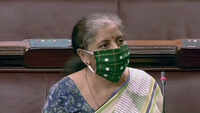 Finance Minister moves Bill to amend Banking Regulation Act, 1949 in LS
Finance Minister moves Bill to amend Banking Regulation Act, 1949 in LS 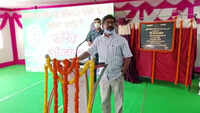 CM Soren inaugurates ‘COVID-19 Test Lab’ in Jharkhand’s Dumka
CM Soren inaugurates ‘COVID-19 Test Lab’ in Jharkhand’s Dumka 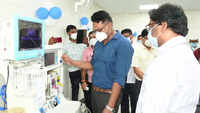 CM Hemant Soren inaugurates operation theatre, X-ray machine at Dumka Medical College
CM Hemant Soren inaugurates operation theatre, X-ray machine at Dumka Medical College 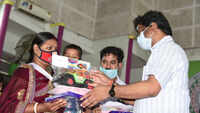 CM Hemant Soren inaugurates, lays foundation stone of different govt schemes in Dumka
CM Hemant Soren inaugurates, lays foundation stone of different govt schemes in Dumka 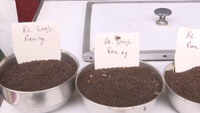 Guwahati’s tea leaves sellers bear losses due to price rise amid COVID-19
Guwahati’s tea leaves sellers bear losses due to price rise amid COVID-19
More from TOI
Navbharat Times
Featured Today in Travel
Quick Links
Coronavirus in MumbaiCoronavirus in KolkataCoronavirus in HyderabadCoronavirus in DelhiCoronavirus in BangaloreCoronavirus symptomsCoronavirus in IndiaWhat is CoronavirusCoronavirus NewsSolar EclipseNPRWhat is NRCCAB BillCAB and NRCRTI BillPodcast newsLok SabhaShiv SenaYSRCPCongressBJP newsUIDAIIndian ArmyISRO newsSupreme Court
Get the app



